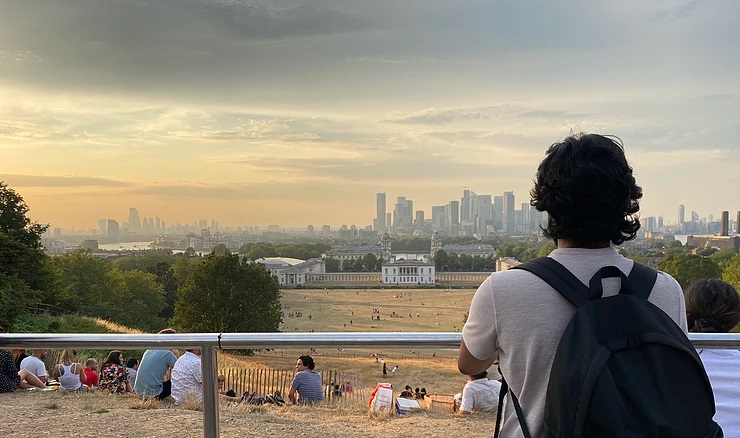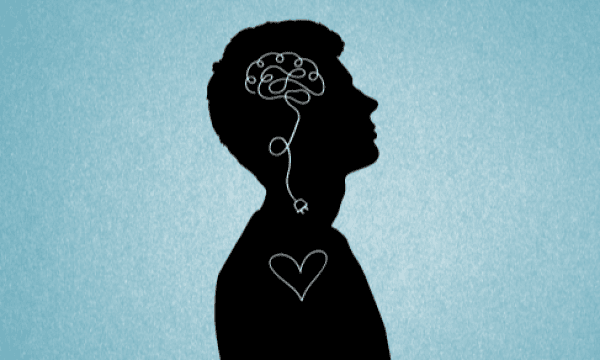
It always starts with a single thought.
Decisions, regrets and general worries about the future have plagued my mind on countless occasions. Sometimes these thoughts are so powerful, that I get caught in an endless, paralytic cycle of replaying the same event, over and over again.
How is it that just a thought can bring up so many buried emotions and stir what you originally believed had been settled?
I have spent much of my life being ‘stuck’ in my head and it isn’t necessarily a bad thing. Engaging in self-reflection and expressing my findings is essentially what helps me write my blog posts. Likewise, thinking about the future helps me prepare for any eventuality.
However, there is a fine line between insightful introspection and overthinking into despair. With the rise of the pandemic and an increasing amount of time spent in isolation, these thoughts have only intensified. Despite acknowledging the downsides of dwelling, it’s a habit I cannot seem to get rid of.
That said, what I would like to share with you, is a school of thought that has helped me combat this. I’d love to say that I have binned this habit completely, but this post is as much a reminder to myself as it is to anyone else struggling.
Stoic philosophy began in Ancient Greece but truly flourished during the Roman Empire, under the likes of Epictetus, Seneca and Emperor Marcus Aurelius. The foundation of Stoicism is the principle that authentic happiness is independent of external conditions.
With the commencement of the second lockdown, I could not help but draw comparisons to the circumstances of the inmates in the film, The Shawshank Redemption. Yes, we have not literally been imprisoned but the struggle to remain sane by the end of our ‘sentence’ is equally real. Hence, it’s only fitting that I use the film’s central character, to explain how this philosophy can be utilised.
At the beginning of the film, banker Andy Dufresne finds himself sentenced to life imprisonment at Shawshank State Penitentiary, for the murders of his wife and her lover, despite his claims of innocence. (Spoiler) The rest of the film chronicles how he deals with his sudden loss of freedom and how he eventually escapes.

Ellis Boyd 'Red' Redding (Morgan Freeman) and Andrew Dufresne (Tim Robbins)
A distinction must be made between what is in our control and that which isn’t
Epictetus believed that we should always divide our concerns into two bins: the things you can control, and the things you cannot. The first bin is dependent on your personal actions and choices. The second bin, on the other hand, should be left completely up to nature/fate/God – whatever you believe in. The second bin can be left alone, as long as we do everything in our power to tend to the first.
Moving away from bins, imagine that you are preparing for a job interview. Our general response would be to worry about whether we get the job or not. A Stoic, however, would suggest that act of worrying is pointless, as the job itself is not under our control. The interviewer could have woken up on the wrong side of the bed, he might have other issues playing on his mind, or there might genuinely be someone more qualified for the role. Instead, it is up to us to ensure that we have prepared as well as we can and put the best version of ourselves forward. Don’t attach your self-worth to the outcome, only to what you can control.
In the film, by accepting the conditions of his life, Andy is able to shield himself from the prison walls and the impact that they would normally have on a person. Most people in the prison lost faith and no longer cared to live. From an outsider’s perspective, an innocent man carrying two life sentences would be deemed a tragedy. However, Andy recognises that no situation, person or institution can ever take his hope away. His inner freedom is solely under his control and his hope becomes so infectious that it even begins to spread to the other prisoners.
In addition to this, Andy uses his experience as a banker to gain the trust of the guards and the warden, making it easier for him to accomplish his escape plan. On one occasion, when he hears a guard lamenting about the taxes on his inheritance, Andy sees an opportunity that he can benefit from. He convinces the guard to allow him to set up a tax-free gift for his wife, in exchange for beers for his friends. Therefore, Stoicism isn’t about being passive and unemotional, but about devoting time to opportunities within our power.
"There is only one way to happiness and that is to cease worrying about things which are beyond the power of our will" – Epictetus
We suffer more in our imagination than in reality
I understand that the last thing that an ‘overthinker’ wants to hear is more ways to think. In most cases, you end up overthinking the act of overthinking – a downward spiral. Therefore, whilst many self-help strategies are helpful, it is important to first question the validity of our thoughts. A thought is nothing but a fiction of the mind or the screenplay for an unfinished film.
For instance, with the increased stress that we’re all experiencing around coronavirus, it’s very tempting to let our minds race forward and envision worst-case scenarios. Seneca believed that when your mind wanders to a negative fictitious scenario, it is important that you bring it back to the present and return to what you are doing. At the end of the day, the future is dependent on our present actions and so the present is sufficient.
This also applies to feelings of regret. In the film, Andy is only able to focus on his pursuit for freedom (internal and external) by accepting the past for what it is and letting go. He focuses on building new relationships with his fellow inmates, rather than languishing over his failed marriage.
“It all just comes down to a simple decision…you get busy living or get busy dying”- Andy Dufresne
Our lives, much like Andy’s, have been pushed into an unfamiliar place. Therefore, it is incredibly important that in our moments of isolation, we track our thoughts, moderate them and ultimately let them go if necessary. Our mind is a great tool and rationality is a gift that sets us apart from animals, but it is crucial that we use the tools that we’re given and not the other way round.
It can always end with a single thought.
P.S. If you really can’t get a thought out of your head, please talk to someone. There’s no greater philosophy than speaking to someone about how you feel.
***Looking to create your love story? Join the other couples who have dated and got married through myTamilDate.com!***
"How France Met Canada: A MyTamilDate.com Love Story"
"How a Message on myTamilDate.com Led to an Engagement for Lavanya & Vitharan"
Related Articles:
- "How A Daily Ritual and Family Heritage Inspired a Multi-Million Dollar Company: Meet Sashee Chandran, Founder of Tea Drops"
- "These Tamil Entrepreneurs Share How They Grew Their Side Hustles"
- "Tamil Innovators Spotlight: Tea Drops CEO & Founder, Sashee Chandran"
- "Tamil Innovators Spotlight: Knowledgehook's CEO, Travis Ratnam"
- "Tamil Innovators Spotlight: Kabo CEO & Founder, Vino Jeyapalan"
- "Danny Sriskandarajah's Journey From Rural Sri Lanka to CEO of Oxfam Great Britain"
- "Meet Tamil-Canadian Tech Entrepreneur Mano Kulasingam"
- "The NBA Bubble: Dr. Priya Sampathkumar Helped Make It Happen"
- "These Tamil Founders Behind Agritech Startup Dunya Habitats Want To Alleviate Food Security Globally"
- "Marketing Maven Jackson Jeyanayagam Shares Insights From His Illustrious 20-Year Career"
- "Angel Investor Jay Vasantharajah On Building His Portfolio One Day At A Time"
- "Meet Tamil-Canadian Journalist Kumutha Ramanathan"
- "Breaking Into Hollywood: Meet Tamil-Canadian Actor Vas Saranga"
- "Meet Rebecca Dharmapalan - Filmmaker, Legal Scholar, And Activist"


























